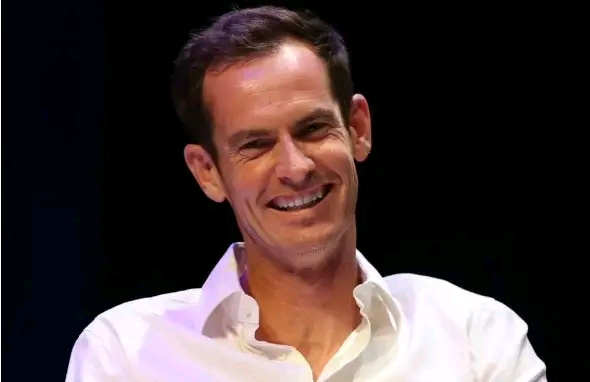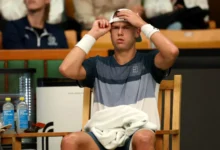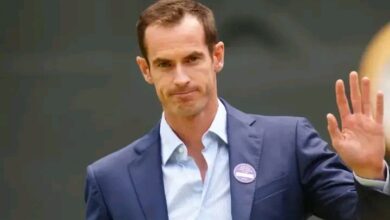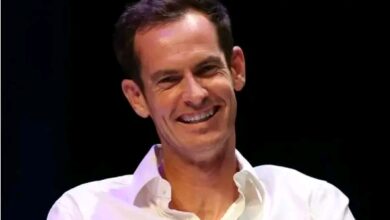His Career, His Regrets, and That One Summer That Changed Everything — The Andy Murray No One Talks About

Andy Murray, the Scottish tennis icon, retired in August 2024 after a remarkable two-decade career that saw him rise from a scrappy junior to a three-time Grand Slam champion, two-time Olympic gold medalist, and former world No. 1. Known for his gritty determination and resilience, Murray’s journey was marked by triumphs, setbacks, and a transformative summer in 2012 that redefined his legacy. Yet, beneath the headlines lies a lesser-known story of personal regrets, uncelebrated moments, and a complex relationship with his own achievements.
A Career Defined by Grit and Glory
Born in 1987 in Dunblane, Scotland, Murray’s path to tennis stardom was unconventional. Growing up in the shadow of the 1996 Dunblane school massacre, which he survived, Murray channeled his energy into tennis. His talent shone early, winning the US Open Juniors in 2004 and breaking into the ATP top 10 by 2007.
Murray’s career highlights include 46 ATP Tour singles titles, the 2012 US Open, 2013 and 2016 Wimbledon Championships, and Olympic gold medals in 2012 and 2016. He also led Great Britain to a 2015 Davis Cup victory and held the world No. 1 ranking for 41 weeks. Competing in the era of Federer, Nadal, and Djokovic, every victory was hard-fought, and injuries, particularly a debilitating hip condition, threatened to derail his career.
### The Summer of 2012: A Turning Point
The summer of 2012 was pivotal for Murray. Entering Wimbledon that year, he carried the weight of British expectations. Despite reaching the final, he fell to Roger Federer in four sets, a loss that left him visibly emotional. His tears on court endeared him to fans who had once misunderstood him.
Weeks later, at the London 2012 Olympics, Murray turned heartbreak into triumph, dominating Federer in the singles final to claim his first Olympic gold. This victory marked a shift, proving he could compete with the best. He followed it with his first Grand Slam title at the 2012 US Open, defeating Djokovic in a grueling five-setter. That summer redefined Murray’s career and public perception.
### The Regrets That Linger
Despite his accolades, Murray has been candid about his regrets. In a 2025 interview, he admitted he didn’t savor his achievements enough during his career. “I didn’t do a good job of celebrating those good times,” he reflected. The 2012 Wimbledon loss, in particular, haunts him—not for the defeat itself, but for how he let the aftermath overshadow the moment.
Murray also expressed regret over his early years on tour, when he prioritized training over exploring the world. “I wish I had done it a bit more,” he said, reflecting on missed opportunities to embrace the cities he visited. His complex relationship with the media also shaped his career, as early criticism made him wary of public perception.
### The Unseen Struggles
Murray’s physical battles are well-documented, but his mental resilience is less celebrated. The Dunblane massacre left an indelible mark, though he rarely discusses it. This early adversity, coupled with his parents’ split when he was 10, fueled his competitive spirit.
His hip injury, beginning in 2017, was a defining challenge. After undergoing two surgeries, Murray defied expectations by returning to competitive play, winning the 2019 European Open. Yet, by 2024, injuries forced him to accept retirement. “The pain and discomfort in my body is not good,” he admitted, relieved to end on his terms.
A Legacy Beyond the Court
Murray’s legacy extends beyond titles. A vocal advocate for equality, he called out sexism in tennis. His humor, often misunderstood, shone through in moments like his post-retirement quip: “Never even liked tennis anyway.”
Since retiring, Murray has embraced family life with his wife Kim and their four children. He’s also taken up coaching, working with Novak Djokovic in early 2025. His reflections reveal a man at peace, yet introspective. “I’m curious to see if that changes because I love this time of year,” he said of Wimbledon season, hinting at a lingering connection to the sport.
The Andy Murray No One Talks About
The Andy Murray no one talks about is the one who navigated public scrutiny, personal trauma, and physical pain with quiet strength. He’s the man who regrets not savoring his triumphs, who wished he’d explored the world beyond the court, and who found joy in proving doubters wrong. The summer of 2012 was his turning point, not just for the titles but for showing a nation his heart. As he steps into coaching and family life, Murray’s story remains one of resilience, authenticity, and a legacy that transcends tennis.








